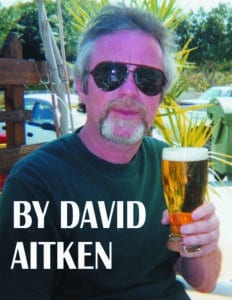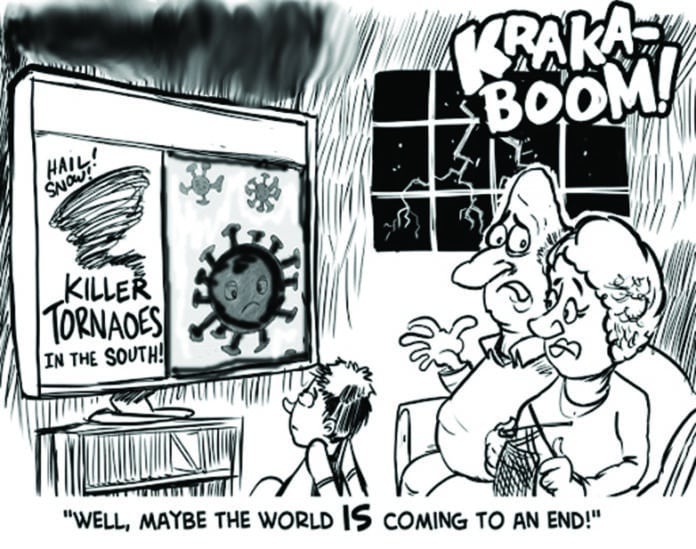 Remember when there was no rush hour because every hour was rush hour? Hard to credit it now, looking at the sparsely populated streets during the pandemic. I recall a school lesson on the nature of Roman imperialism: “They make a desert and call it peace.” Of course, that was in 1958, the memory I mean, so I forget the original Latin words, you’ll be delighted to know.
Remember when there was no rush hour because every hour was rush hour? Hard to credit it now, looking at the sparsely populated streets during the pandemic. I recall a school lesson on the nature of Roman imperialism: “They make a desert and call it peace.” Of course, that was in 1958, the memory I mean, so I forget the original Latin words, you’ll be delighted to know.
In more recent times, I saw the film I Am Legend, in which a virus has wiped out most of mankind, leaving Will Smith as the last human in New York. Fortunately Will happens to be a virologist — what are the odds of that? — and even luckier for him, he is immune to the virus. All he needs now is to find some beautiful woman survivor, oh, look, there she is: “You are not alone,” she tells Will.
For a large part of I Am Legend, our hero patrols a wasteland of streets littered with abandoned cars and what look like broken fridges (yes, a littered wasteland, but you know what I mean.) Like many films of this ilk, there are mutants around as well — did I mention that if the virus doesn’t kill you, it turns you into a vampire albino cannibal? And all of this is because someone — Emma Thompson, actually — tried to alter the measles virus to cure cancer. You can’t win ’em all, Em.
The times we are living in seem almost to pander to our fascination with stories of an apocalyptic nature. Think Pallbearer, in which a mass vaccination programme with tainted vaccines destroys most of the world’s population (Gulp!) or The Andromeda Strain, in which a deadly microorganism kills through instant blood clotting, causing people to die in mid-stride or “go quietly nuts” and commit bizarre suicides. Not one of our variants does that yet, thank goodness.
Similar things, I am happy to report, happen only rarely in my neck of the woods and when they do, they are far less horrific than the examples quoted above. From where I sit typing this, I have a view of a stage, I mean a bus stop stage, and every so often a large empty double-decker draws to a halt to let no passengers disembark before no passengers hop on.
This might seem terrifically symbolic of modern Pandemic Life (I say modern because there are no zombies) but for me it simply recalls a David Niven story about a Hungarian film director ordering the entrance of a hundred riderless chargers, with the words, “Bring on the empty horses!”
There is something invitingly existential about an empty bus, and when better times return, I shall miss the people who are no longer absent. “Bring on the empty buses,” I may say. Especially during rush hour.





